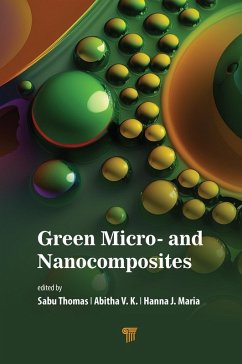Green materials derived from renewable resources are increasingly being advocated for sustainable development due to rising environmental consciousness, waste management difficulties, depleting fossil resources, and rising oil prices to name a few. Renewable green resources such as starchy and cellulose polymers, natural fibers, vegetable oils, wood bark, cotton, wool, and silk have been utilized for food, furniture, and clothing for thousands of years. They have only recently undergone a revival as one of the most cost-effective alternatives to synthetic polymers in a variety of industrial applications, including building and construction, automotive packaging, films, and paper coating as well as biomedical uses. The primary drawbacks of synthetic polymers, such as the release of toxic gases and vapors during incineration and the difficulty in disposing of them, have prompted extensive research on new, green polymeric materials with special focus on the use of biopolymers derived from renewable resources for green composite applications. This book gives a true reflection of the vast area of research in green composites as it has contributions from internationally recognized experts in the field of green polymer materials, representing a wide range of disciplines, backgrounds, and expertise.
Dieser Download kann aus rechtlichen Gründen nur mit Rechnungsadresse in A, B, BG, CY, CZ, D, DK, EW, E, FIN, F, GR, HR, H, IRL, I, LT, L, LR, M, NL, PL, P, R, S, SLO, SK ausgeliefert werden.









